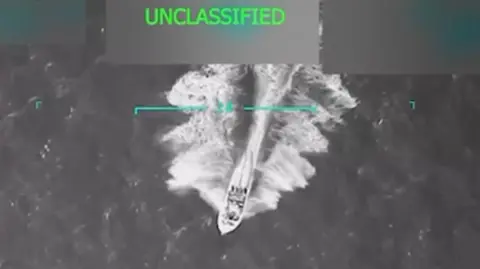The US State Department has revoked visas held by members of the Mexican band, Los Alegres del Barranco, for allegedly "glorifying a drug kingpin." This action, announced by Deputy Secretary of State Christopher Landau, followed an incident where the band displayed an image of El Mencho at a recent concert in Zapopan, Mexico. El Mencho, whose real name is Nemesio Oseguera Ramos, is the leader of the Jalisco New Generation Cartel (CJNG), identified as one of the most dangerous transnational drug trafficking groups.
In a statement on social media, Landau emphasized the seriousness of the Trump Administration's stance on foreign access to the US, stating, "the last thing we need is a welcome mat for people who extol criminals and terrorists." The band faced backlash not only from US authorities but also from officials in Mexico after displaying the image during a performance that praised El Mencho as "a man of war who loves his family."
Narcocorridos, songs that celebrate drug cartel figures, have become a controversial part of Mexico's music culture. Many bands, including those in the norteña genre, regularly compose songs glorifying cartel leaders, often funded by drug lords themselves. For instance, Los Alegres del Barranco has a repertoire that includes songs about other infamous criminals, like Joaquín "El Chapo" Guzmán.
The concert coincided with grim findings from authorities, including a ranch linked to the CJNG that has been dubbed a "training and extermination camp." The discovery of abandoned belongings suggested a history of violence, with the cartel allegedly using the location for brutal training and killings.
Mexican President Claudia Sheinbaum condemned the band's actions, asserting the need for an investigation into the incident to prevent such "wrong" occurrences. Following the backlash, the band's singer expressed satisfaction with the media attention during his interaction with fans, calling it "cool" and thanking supporters for their encouragement. As the implications of narcocorridos continue to spark debate, the complex relationship between music, crime, and culture remains a focal point in discussions about Mexico's struggles with drug violence.



















